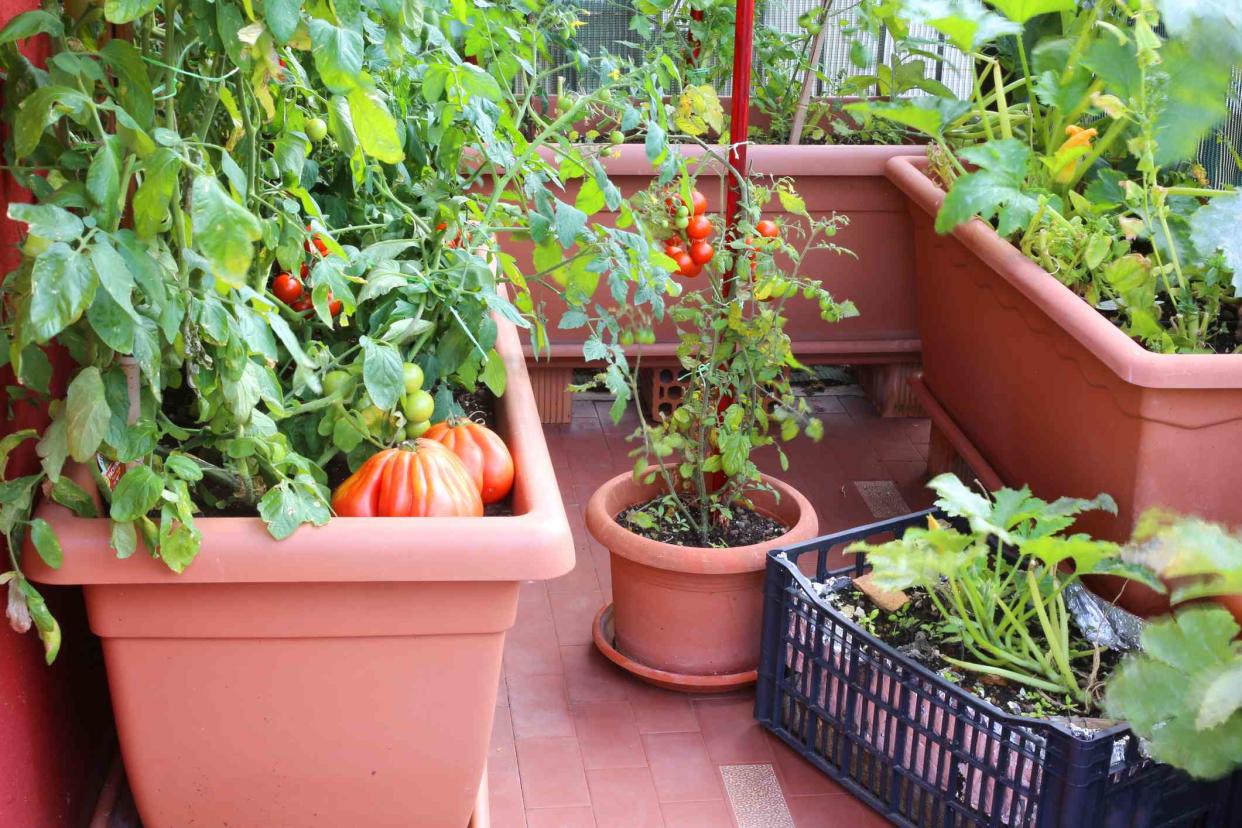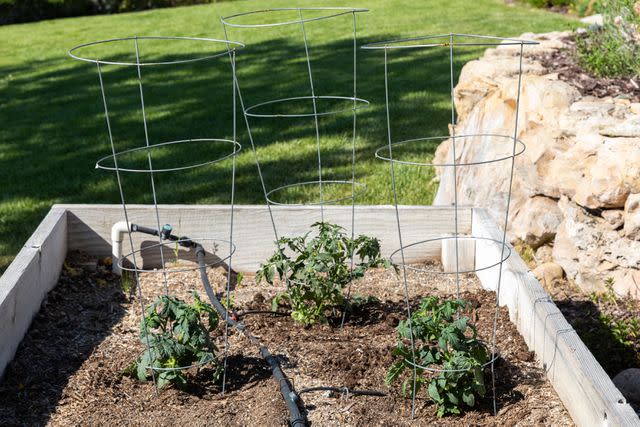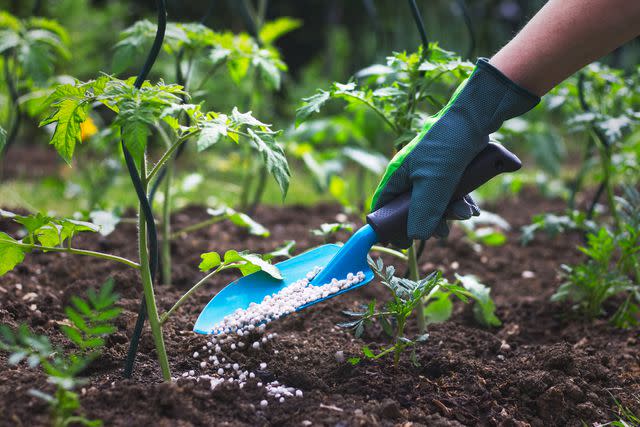Should You Really Use Coffee Grounds for Tomato Plants? What to Know

Getty Images / ChiccoDodiFC
Tomato plants are the most popular vegetable grown in the home garden, so all we want is for them to thrive and produce a bountiful harvest. There are several ways to support tomatoes as they grow—but could coffee grounds be the secret ingredient to growing tomato plants successfully?
The answer is no, but if composted properly, they won't hurt the plants. We share everything you need to know about using coffee grounds for tomato plants in the garden.
The Short Answer
Coffee grounds are not the secret ingredient for successful tomato plant growth or a replacement for fertilizers. While coffee grounds contain some components that plants need, they are ineffective unless broken down by organisms in a compost pile.
Why Coffee Grounds Can Work for Tomatoes

The Spruce / Jayme Burrows
Coffee grounds contain nitrogen (about two percent) and trace amounts of phosphorus and potassium necessary for plant growth. But, scattering coffee grounds on the top of the soil or even working it in slightly is not effective.
The caffeine residues in the used coffee grounds can actually suppress germination and slow the growth of some plants. The grounds don't release their beneficial components until organisms in the soil break them down—that can take months in a compost pile.
The best way to use coffee grounds for tomato plants is to add them to your compost pile of leaves, grass clippings, and vegetable trimmings. Turn the compost pile often, and then use the organically-rich mixture to enrich the garden or container soil before you add the tomato plants.
Want more gardening tips? Sign up for our free gardening newsletter for our best-growing tips, troubleshooting hacks, and more!
Should You Use Coffee Grounds to Fertilize Tomatoes?
Coffee grounds should not be used as the sole fertilizer for tomato plants. The grounds do not contain the nutrient balance that tomatoes need to thrive, and adding too many grounds will affect the soil's pH.
Tomato plants can tolerate slightly acid soils, as low as pH 5.5. But are the healthiest and most productive when the soil pH is 6.0 to 6.8.
Suppose you use organically rich soil (that can contain some composted coffee grounds). In that case, you may not need to add a great deal of fertilizer when planting tomatoes or throughout the growing season.
Benefits of Traditional Fertilizer vs. Coffee Grounds

Zbynek Pospisil / Getty Images
Coffee grounds contain just two percent nitrogen and mere traces of phosphorus and potassium, and it takes weeks or months for the grounds to break down enough to release these nutrients into the soil.
Most tomato plants benefit from the application of a balanced NPK fertilizer a few times throughout the growing season. Avoid using a fertilizer that is high in nitrogen (N), as you will get excessive leaf formation and less fruit.
Appropriate levels of potassium and phosphorus have positive effects on fruit sugar and acid content. Proper fertilization also produced tomatoes with more health-promoting carotenoids and red lycopene beneficial to human nutrition.
Adequate plant nutrition is important in producing tasty tomatoes with better flavor and appearance.
Frequently Asked Questions
How often can I put coffee grounds on my tomato plants?
A sprinkling of coffee grounds mixed into the soil before planting tomatoes will not harm the plants. However, no additional coffee grounds should be added to the soil during the growing season. Excessive use allows the caffeine residues in the spent coffee grounds to suppress germination and slow the growth of the plants.
What plants should I not put coffee grounds on?
Using spent coffee grounds in growing broccoli, leek, radish, viola, and sunflower resulted in poorer growth in all soil types, with or without additional fertilizer. Plants like lilacs and lavender prefer alkaline soil, so adding the slightly acidic coffee grounds may harm them. The caffeine in coffee grounds can also harm some herbs and geraniums.
Do tomato plants like coffee grounds and eggshells?
Adding coffee grounds and eggshells to the soil around tomato plants does not benefit the plants, prevent disease, or ward off pests. The only way coffee grounds and eggshells are helpful to tomato plants is through their addition to the compost pile. Once broken down over many months, their nutrients enrich the soil.
Read the original article on The Spruce.

